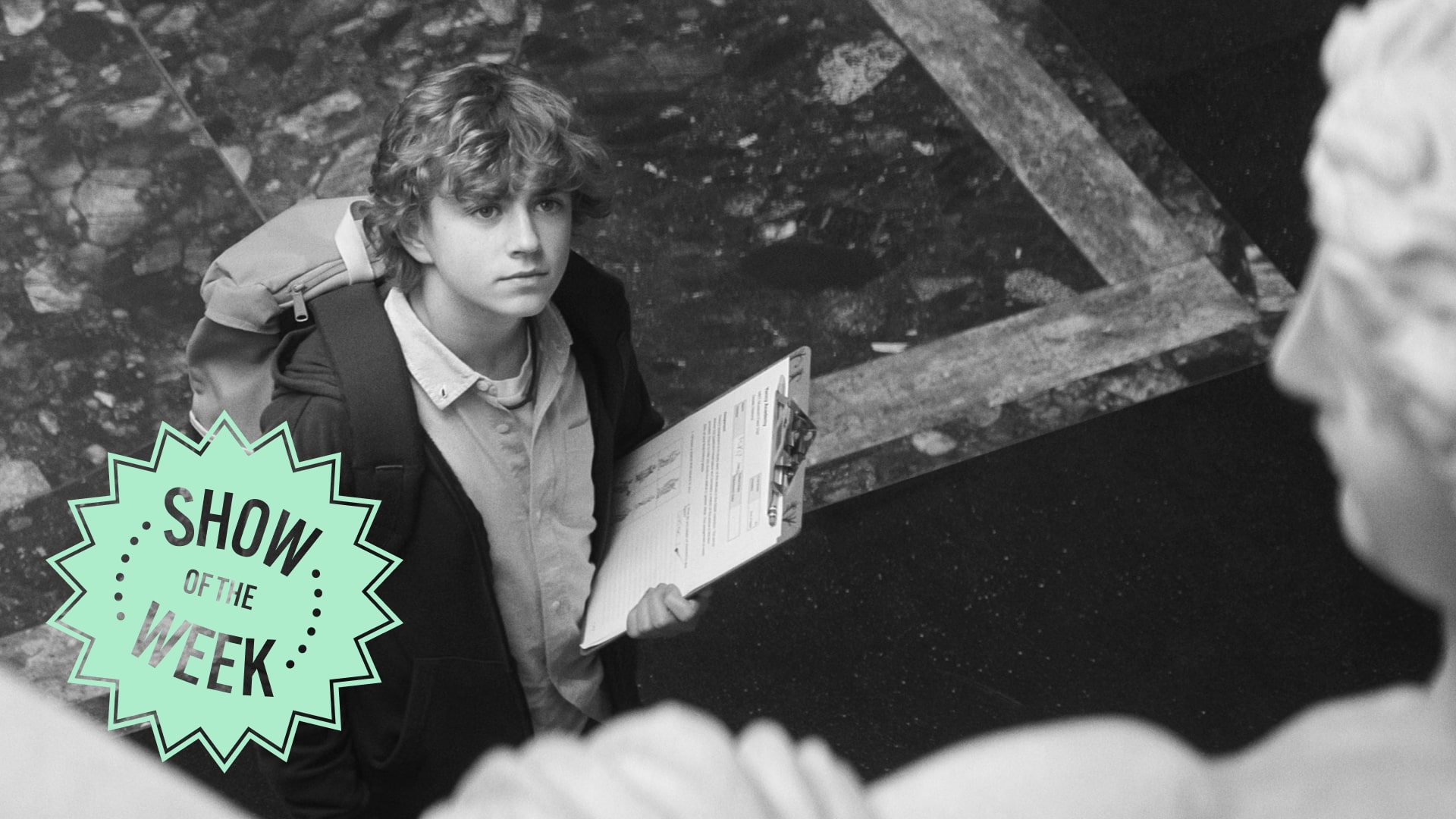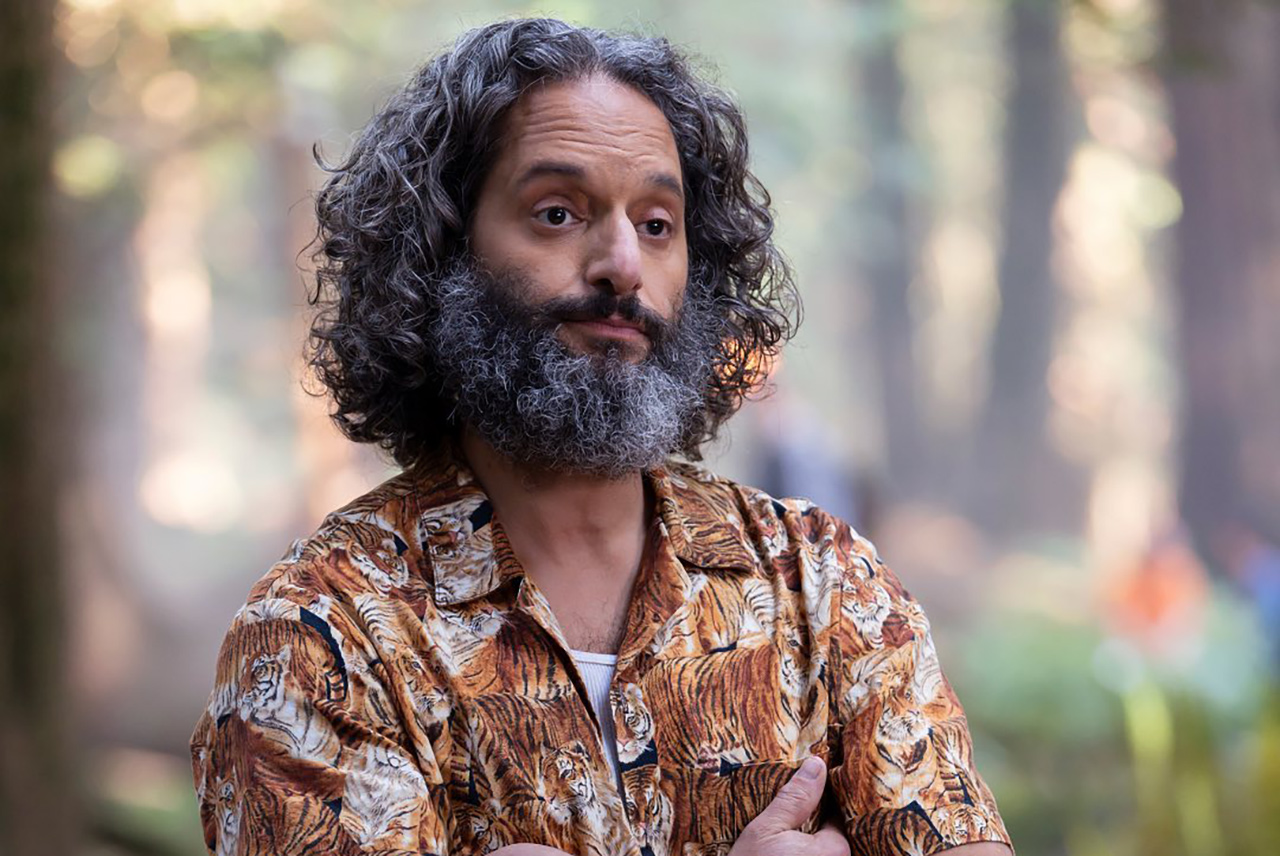Disney’s Percy Jackson series is the adaptation fans have dreamed of

Clarisse Loughrey’s Show of the Week column, published every Friday, recommends a new series to watch. This week: it’s Disney’s magical adventure Percy Jackson and The Olympians.
Now that the Harry Potter franchise, for various reasons, is on a rapid decline, we’ve arrived at the question: what next?
Children will always be in need of an escape, a promise that even if their lives seem hard and ill-fitted, a sensational future could lie right around the corner. Yet, I’d argue that a suitable – if not, superior – successor has been waiting in the wings since 2005: the popular, through not-quite-ubiquitous, Percy Jackson series, written by Rick Riordan, about a boy who discovers he’s a demigod.
The first two books, The Lightning Thief and The Sea of Monsters, were adapted into films in the early 2010s. Perhaps, without them, Logan Lerman wouldn’t be so comfortably enjoying his current, perennial status as internet boyfriend. But, beyond his charisma, they had little to offer beyond aged-up characters in limp romances and Pierce Brosnan with horse legs. The vague outline of “boy discovers magical heritage” may seem like a cash cow, but Hollywood was too naked in its Potter ambitions. It failed to understand what Percy Jackson was really about – until now.
A new series, officially titled Percy Jackson and the Olympians, co-created by Riordan and Jonathan E. Steinberg for Disney+, is exactly what fans have always dreamed of, and what newcomers always needed. It’s proof of the series’s magic, of the reassurances it can offer that the Potter films never thought to seek: a way to ground its metaphors in real experience, reflected in Riordan’s intent to write an explicitly ADHD and dyslexic protagonist as a tribute to his ADHD and dyslexic son.
Percy (Walker Scobell) is plagued by the three-headed Cerberus of bad grades, bullies, and crippling insecurity. He’s a neurodivergent kid doing his best to keep afloat, who confesses that he’s “used to the world feeling weird… like a puzzle with half the wrong pieces”. But, as it turns out, his issues – with concentration, the tendency to daydream, or the way letters always float off the page and jumble together – are actually, as his mother Sally (Virginia Kull) reveals, the result of his Mount Olympus DNA. Yes, Papa is a Greek deity. That’s why he never even sent a Christmas card.
And sure, on the diagnostic side, it’s a little simplistic to be telling kids that their neurodivergence was actually handed down from the high heavens. But Percy Jackson and the Olympians doesn’t stumble into the kind of elitist mindset that would consider “difference” as a secret form of privilege – it won’t whisk you off to a private boarding school so you can lord it over the mortals.
Percy’s godly heritage endangers him as much as it protects him, and the show’s equivalent to Hogwarts, Camp Half-Blood, isn’t an educational theme park but a “safe space” and like-minded community. “For the first time in your life, you’re just like everyone else,” Percy’s told by a fellow demigod. The only real prize, here, is to finally find a normality that represents your normality.

Image: @percyseries
And Riordan’s found quite a beautiful way to weave his story into the wider tapestry of Greek mythology – though I must first congratulate the show on the utterly sublime choice to cast Jason Mantzoukas as the god of wine and good vibes, Dionysus. As Percy’s Latin teacher, Mr Brunner (Glynn Turman), explains, these tales of heroes and monsters reveal the “truest and deepest parts of yourselves”. In the first four episodes made available to critics, we’re able already to not only indulge in these myths, but to interrogate and find our place within them. Medusa (Jessica Parker Kennedy), for example, pointedly refers to herself as a “survivor”. Riordan bridges past and present concerns – and then, perhaps, thinks of the future, and how these stories might inspire a new generation to see the best in themselves.

















